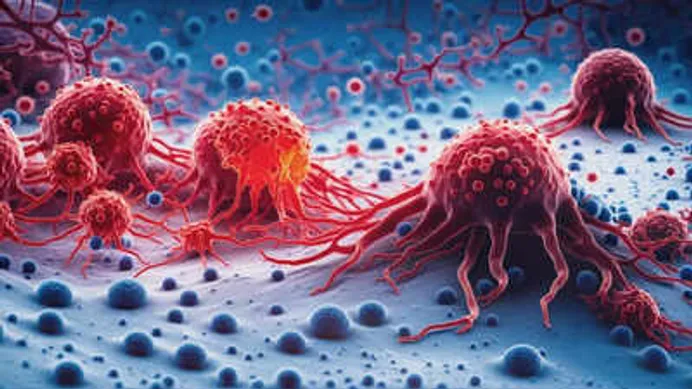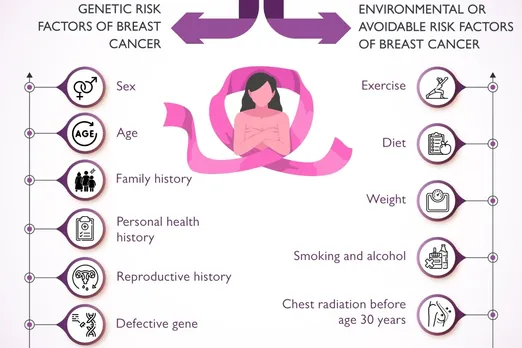“Your body whispers before it screams — listen to it.” Breast cancer is one of the most common cancers in women, yet its early signs often go unnoticed. It doesn’t always begin with a lump; sometimes, it\’s a skin change, a subtle ache, or a shift you might ignore. Women over 40 or with a family history are especially at risk.
Recognizing these silent symptoms early can make all the difference. The sooner breast cancer is detected, the better the chances of successful treatment. Here are 7 often-overlooked signs every woman should be aware of before it’s too late.
7 Subtle Symptoms of Breast Cancer Often Overlooked
Breast cancer risk increases when early, quiet signs are missed. On July 19, 2025, Times Entertainment spotlighted seven such subtle symptoms that women often overlook. Recognizing these early warning signals could be life-saving.

- A persistent itch deep inside the breast that does not improve with creams or antihistamines over days.
- Breast pain without injury, feeling like a dull ache near the armpit or chest wall area.
- A sudden change in the size or shape of one breast, appearing uneven or flat in areas.
- Unexplained skin changes like dimpling, redness, bruising, or skin texture that distinctly resembles orange peel patterns.
- Swollen lymph nodes under the armpit or near the collarbone feel like soft beans or pebbles.
- Spontaneous nipple discharge, whether bloody, green, yellow, or clear fluid, occurring without any manual pressure.
- A firm lump that feels different, hard, and fixed under the skin without shifting easily.
What Causes Breast Cancer? Factors Women Must Understand
Genetic mutations in hereditary BRCA1 and BRCA2 genes greatly increase the risk of developing Breast Cancer. Age over fifty and a personal history of breast abnormalities also contribute to potential cancer development. Exposure to radiation during young adulthood or high hormone levels from hormone therapy can be factors.

Lifestyle choices such as excessive alcohol use, obesity, and lack of exercise can dramatically raise the risk. Family history, reproductive factors, and dense breast tissue are additional causes women should clinically understand today.
Precautionary Habits to Reduce Breast Cancer Risk Daily — Inspired by Hina Khan’s Journey
As actress Hina Khan courageously battles breast cancer, she has turned to spirituality for strength and healing. Through the Art of Living program, which she attended with Rocky Jaiswal, Hina embraced meditation and mindfulness, thanking Sri Sri Ravi Shankar for guiding her toward inner peace. Her journey is a reminder of how emotional wellness and early action can make a powerful difference.
DON'T MISS
Here are key habits to lower your breast cancer risk:
-
Maintain a healthy weight, especially after menopause.
-
Exercise regularly—aim for at least 150 minutes of moderate activity per week.
-
Limit alcohol intake to no more than one drink a day.
-
Avoid smoking, as it\’s linked to multiple cancers.
-
Get regular screenings, including mammograms, especially after age 40.
-
Know your family history and consider genetic counseling if needed.
-
Eat a balanced diet rich in fruits, vegetables, and whole grains.
-
Practice self-exams and stay alert to any physical changes.
Hina’s strength highlights the importance of both prevention and emotional resilience in facing breast cancer.
Other Vital Health Checks Women Should Prioritise Regularly
Regular screenings can dramatically improve breast cancer outcomes. According to the WHO, 2.3 million women were diagnosed worldwide in 2020.
-
Annual clinical breast exams to spot early changes.
-
Yearly mammograms after age 40, or sooner with family history.
-
Breast MRI/ultrasound for dense tissue or genetic risk.
-
Hormone and bone‑density monitoring, especially post‑menopause.
-
Health journal to record family history, test results, and symptoms.
Early awareness and proactive checks can transform Breast Cancer outcomes and empower every woman today. Take these silent signs seriously to defend your health, and remember, staying informed and consistent can help you lead a stronger, healthier life.


